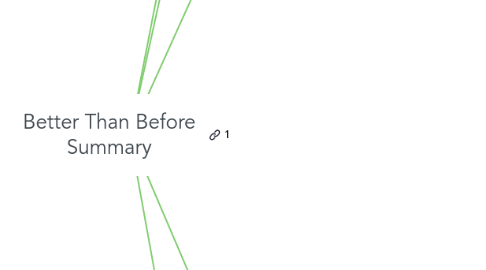
1. 1-Sentence-Summary:
1.1. Better Than Before breaks down the latest research on how to break bad habits and develop good ones, in order to help you find your habit tendency and give you a few simple tools to start improving your own habits.
2. Favorite quote from the author:
2.1. "What you do every day matters more than what you do once in a while." - Gretchen Rubin
3. According to the habit tendency framework, there are 4 distinctive types of people, based on how they respond to inner and outer expectations:
3.1. Upholders, who respond well to both.
3.1.1. Upholders win the habit lottery, as new habits come easy to them, as long as there’s a strict set of rules they can follow.
3.1.2. Take away the structure though, and they start to struggle.
3.1.3. An example:
3.2. Questioners, who respond well to inner expectations, but not to outer ones.
3.2.1. They naturally doubt the effect good or bad habits have, which is why they’re data-driven.
3.2.2. If they want to eat better, they should take a close look at all the ingredients of their food, research why every single one is good or bad, and look at studies who proved the effects.
3.3. Obligers, who respond well to outer expectations, but not to inner ones.
3.3.1. They will find themselves often trying to please people, because they put other expectations above their own.
3.3.2. Getting an accountability buddy (or coach) who cooks with them or asks them what they ate every day will help them eat better.
3.4. Rebels, who resist all expectations.
3.4.1. They desire authenticity and the freedom to choose.
3.4.2. If you’re a rebel you’d be best off ditching your calendar altogether, and instead telling yourself: I cook a healthy meal for myself today, because I want to.
4. Gretchen gives you simple tools to create better habits.
4.1. Most of them try to minimize the need for willpower, to get your habits on autopilot as quickly as possible.
4.1.1. If you want to exercise regularly, for example, put every workout on your calendar.
4.1.2. Eliminate the need to decide whether you feel good enough after work, and just go if it’s on there.
4.1.3. Your calendar also serves as a habit tracker.
4.1.3.1. For example it’s much easier to eat healthier when you know what you’re starting with, so keep a food journal for a week, weigh yourself every day, or download an app like coach.me.
4.2. A major change can help us create new habits.
4.2.1. In a study, 36% of all participants, who were successful in improving their diet, had recently moved.
4.2.2. Big changes like marriage, moving, divorce, or children moving out can be a great opportunity to pick up new habits, and say goodbye to old ones.
4.3. Similarly to tracking your habits and using a calendar, making good habits easy to do and bad ones hard, will help you.
4.3.1. An example:
4.4. Another way to make things easier is to make them more fun.
4.4.1. 66% more people took the stairs, when Swedish researchers turned them into a piano, making music as you walked up.
4.4.2. Conversely, less people buy ice cream (about half as many) when the lid of the cafeteria ice cream cooler is closed, as opposed to when it’s already open, and the ice cream is easier to grab.
4.5. Remove temptations, wherever possible.
4.6. Another good way to make sure you stick to your good habits is to bundle them. This can work in two ways.
4.6.1. One is called habit stacking and simply means you make a commitment to always do certain habits together.
4.6.1.1. For example you can say: “After I close my laptop in the evening, I will floss my teeth.”
4.6.2. A morning routine works this way too
4.7. A different approach is called temptation bundling, and it pairs your joys with your struggles.
4.7.1. Kathy Milkman, who coined the term, struggled with going to the gym, but loved listening to audiobooks.
4.7.1.1. By creating a rule to only listen to audiobooks in the gym, she bundled the temptation with a good habit, ending up exercising 5 times a week, just to finish The Hunger Games.
